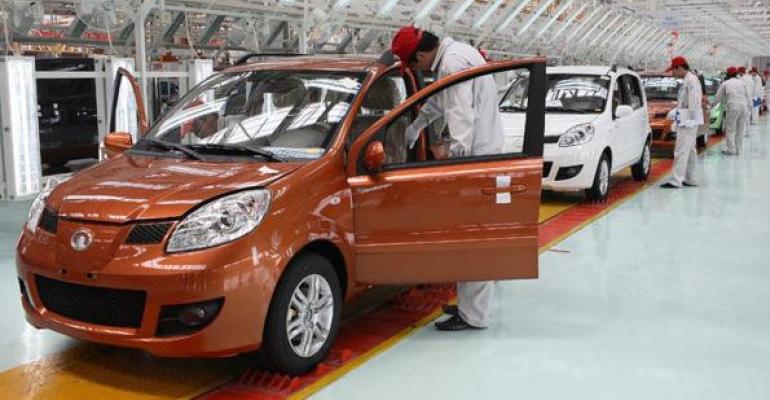GWM Group, parent company of the Great Wall and Haval brands, is China’s first automaker to join the Hydrogen Council.
The council, launched in early 2017 at the World Economic Forum in Davos, Switzerland, is a global CEO initiative to foster the role of hydrogen technologies in the global energy transition.
GWM has five R&D centers globally and is committed to advance cost-competitive technologies for all sustainable energy including fuel cells, electric vehicles and plug-in hybrid electric vehicles.
Earlier this year, it opened Austria Research and Development, a wholly owned subsidiary in Austria. Its work will center on new-energy vehicles and automobile parts, with a focus on new-energy motors and controllers. It plans to invest €20 million ($24.6 million) in the company by 2020.
GWM is one of 11 new Hydrogen Council members from Asia, North America and Europe. It joins 3M, Bosch, China Energy, JXTG Nippon Oil & Energy and Weichai as steering members alongside Hexagon Composites, Marubeni, McPhy, Nel Hydrogen and Royal Vopak at the supporting level.
Since its launch, the council has almost doubled in size, now covering all key markets with members across the value chain.
Council Co-Chairman Woong-chul Yang, vice chairman of Hyundai Motor, says the growth demonstrates the commitment to hydrogen at the CEO level.
“This is corporate leadership at scale – multinationals are walking the talk when it comes to building better solutions to address the Paris Agreement climate goals and hydrogen has become an integral part of our strategies,” Yang says in a statement.
“With increasing interest from policy makers and investors around the globe, the next five to 10 years could see a decisive shift in deployment of hydrogen technologies,” he says.
“Our scenarios suggest that hydrogen technologies could contribute to meeting 18% of the world’s final energy demands, avoiding 6 billion tons of CO2 emissions, creating a market with revenues of $2.5 trillion each year and providing 30 million jobs by midcentury.”





